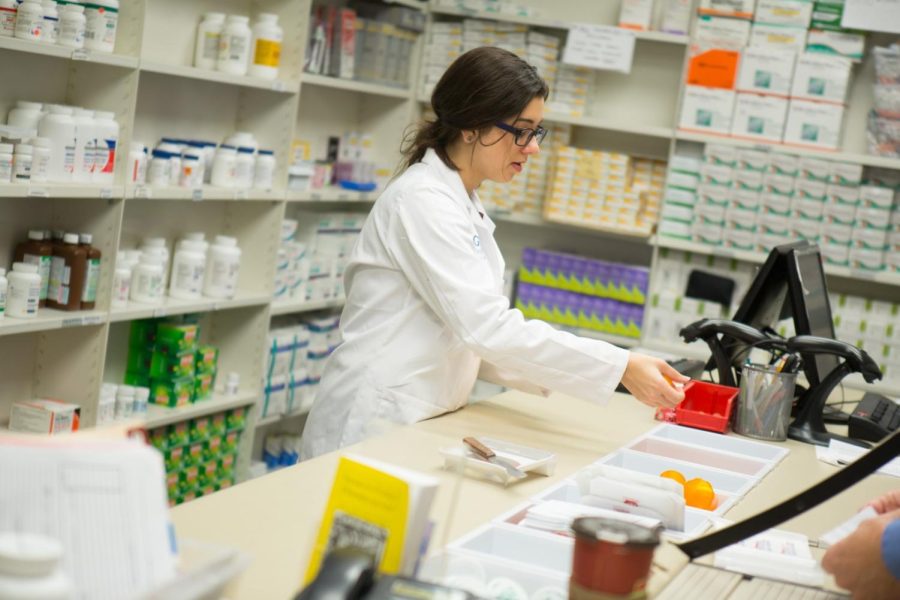Pontiac clinic provides free healthcare to people in need
Photo courtesy of garyburnsteinclinic.org
The Gary Burnstein Community Health Clinic (GBCHC) is a Pontiac-based clinic that provides services for those who do not have access to health insurance or medical care.
In 2020, the National Center for Health Statistics reported in an interview-survey that 31.6 million people in the U.S. were uninsured.
With inaccessibility to affordable health care coverage, several issues arise including inability to afford medication, doctor visits, or essential procedures. Additionally, many could be forced to ignore medical issues that have the potential to be detrimental.
In a 2021 survey conducted by Med City News, 44% of respondents reported they needed to cut expenses in a different aspect of their life in order to afford health care — including food expenses, utility bills or forgoing certain medications in order to afford others.
Throughout the country, there are several medical facilities that hope to change this inaccessibility to health insurance or provide health care to individuals who are not able to receive care otherwise. One of these facilities being the Gary Burnstein Community Health Clinic.
The Gary Burnstein Community Health Clinic (GBCHC) is a Pontiac-based clinic that provides services for those who do not have access to health insurance or medical care. The clinic was started after the passing of Dr. Gary Burnstein in 2003 by his friends, family and community in order to provide medical care for people in need at no cost.
During his lifetime, Dr. Burnstein began offering medical care at homeless shelters in Pontiac, Michigan. Currently, the clinic offers care to Michigan residents who are uninsured and fall at or below 250% of the Federal Poverty Level.
GBCHC provides patients with care from several medical specialties including cardiology, dental, gynecology, optometry, etc. in addition to offering services such as x-rays, MRI’s and prescription medications.
Gerard Knittel, a fourth-year health sciences major at OU, has been a volunteer for the clinic since 2019. Knittel works in the clinic’s pharmacy as a pharmacy technician, filling prescriptions, talking with patients and aiding the pharmacists.
While Knittel has volunteered at the clinic, he has been happy about the opportunity to help people gain access to the health care they need. He stated that volunteering at GBCHC has offered him a new perspective into the impact financial struggles have on acquiring quality care and that the work being done by the clinic is essential.
“Everyone should have a right to health. I know there’s a business aspect of it, especially higher up as you go in the levels of health and healthcare. I think it’s just essential and everyone’s life is just as equal as someone else’s,” Knittel said.
“There’s a struggle in health because there’s the aspect of access to healthcare, the quality of healthcare and also the cost of healthcare and each of them kind of play tug-of-war with each other. It’s really hard to get all three to work out and I think access to healthcare is the first step in getting adequate care.”
As a pre-med student aspiring to enter the world of healthcare, Knittel feels volunteering has given him the opportunity to help the community around him by reflecting the essence of healthcare.
“At the end of the day, you’re just helping out your fellow human being,” he said.
Alexis Van Tiem, a Loyola University Chicago alumni who majored in exercise physiology, also volunteers in the pharmacy at GBCHC. She says that the clinic fosters an incredible environment where everyone is there to serve the community.
“As healthcare workers our goal is to promote the health of the entire community. Our patients at the clinic are seeking help to maintain their health and wellness,” Van Tiem said. “Without this clinic, a specific portion of the community would be left without medical care and counsel.”
In the pharmacy, Van Tiem says that she discusses the purpose of medication, potential risk factors and when to take medication, noting the importance of patients being active participants in their health. She also mentions the counseling aspect of care that the clinic provides to patients is significant to this active participation.
“The counsel the clinic provides allows patients the opportunity to make more health-conscious decisions in their daily lives. Healthier decisions in individuals leads to a healthier community for all.”
Health insurance coverage has been an ongoing issue in the country even with government programs like Medicare, Medicaid or the Affordable Care Act. With almost 14 million people in the U.S. currently seeking health insurance coverage, facilities such as the Gary Burnstein Community Health Clinic have become important components of communities by ensuring the health and well-being of the people in need within those communities.











